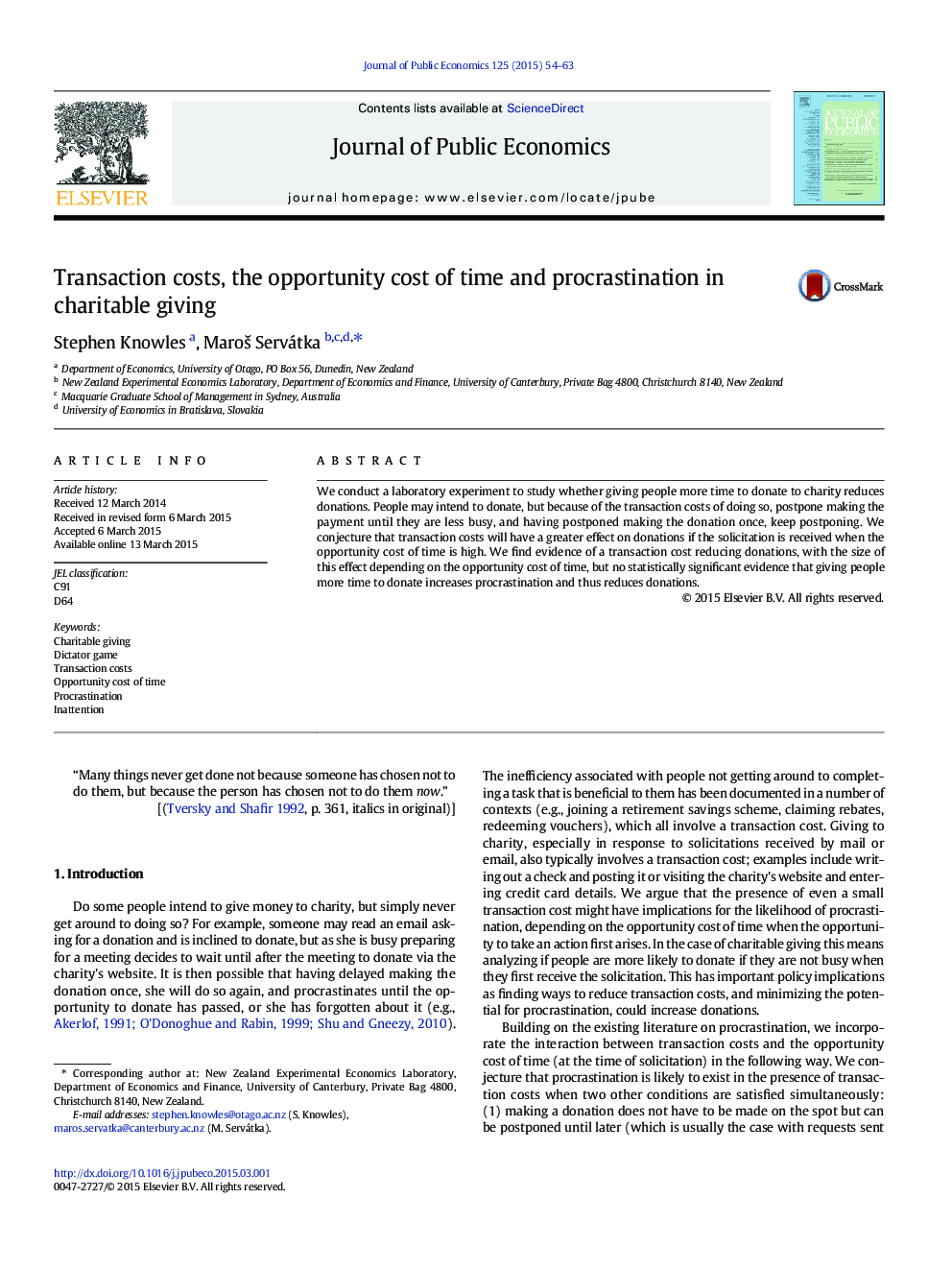| Article ID | Journal | Published Year | Pages | File Type |
|---|---|---|---|---|
| 969055 | Journal of Public Economics | 2015 | 10 Pages |
•We experimentally study whether giving people more time to donate reduces donations.•We find that transaction costs decrease charitable donations.•The effect of transaction costs interacts with the opportunity cost of time.•The higher the opportunity cost at the moment of solicitation, the lower the donations.•Procrastination observed in our experiment is statistically insignificant.
We conduct a laboratory experiment to study whether giving people more time to donate to charity reduces donations. People may intend to donate, but because of the transaction costs of doing so, postpone making the payment until they are less busy, and having postponed making the donation once, keep postponing. We conjecture that transaction costs will have a greater effect on donations if the solicitation is received when the opportunity cost of time is high. We find evidence of a transaction cost reducing donations, with the size of this effect depending on the opportunity cost of time, but no statistically significant evidence that giving people more time to donate increases procrastination and thus reduces donations.
